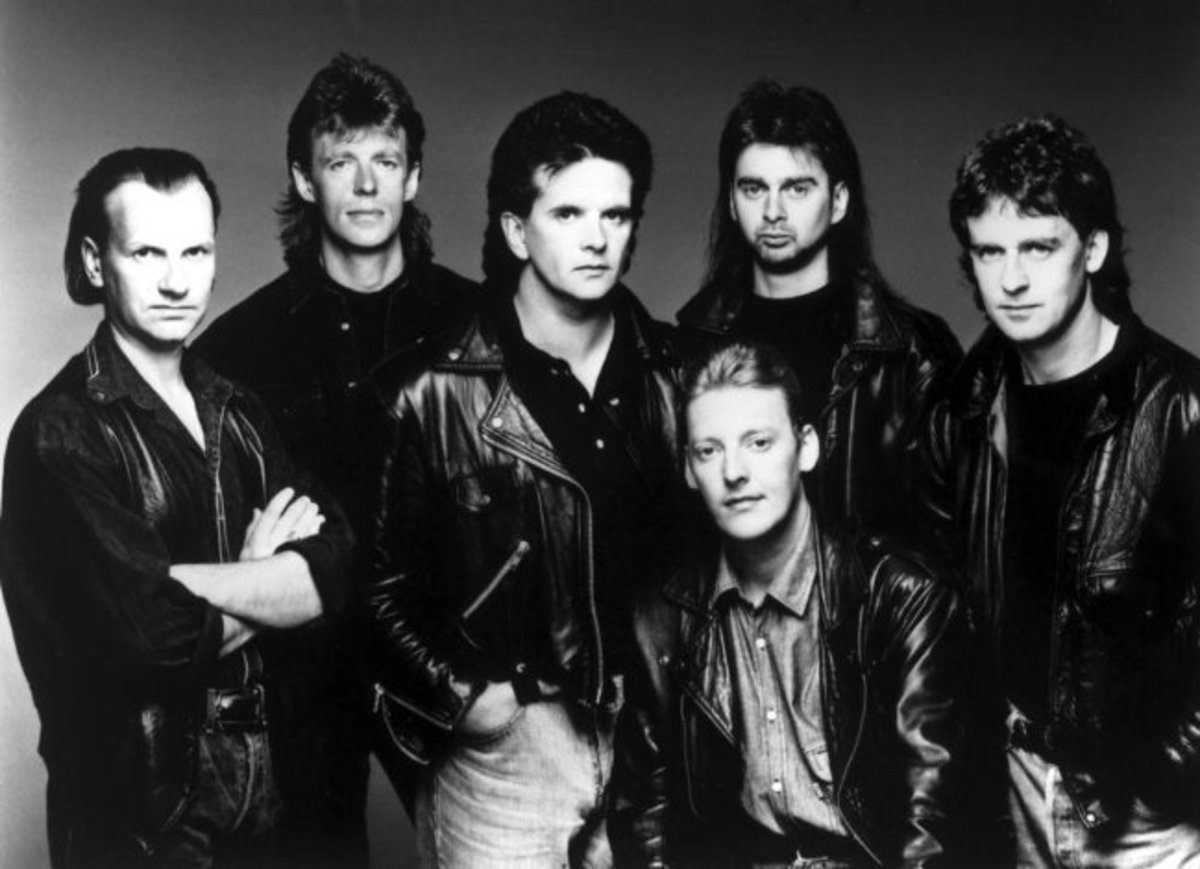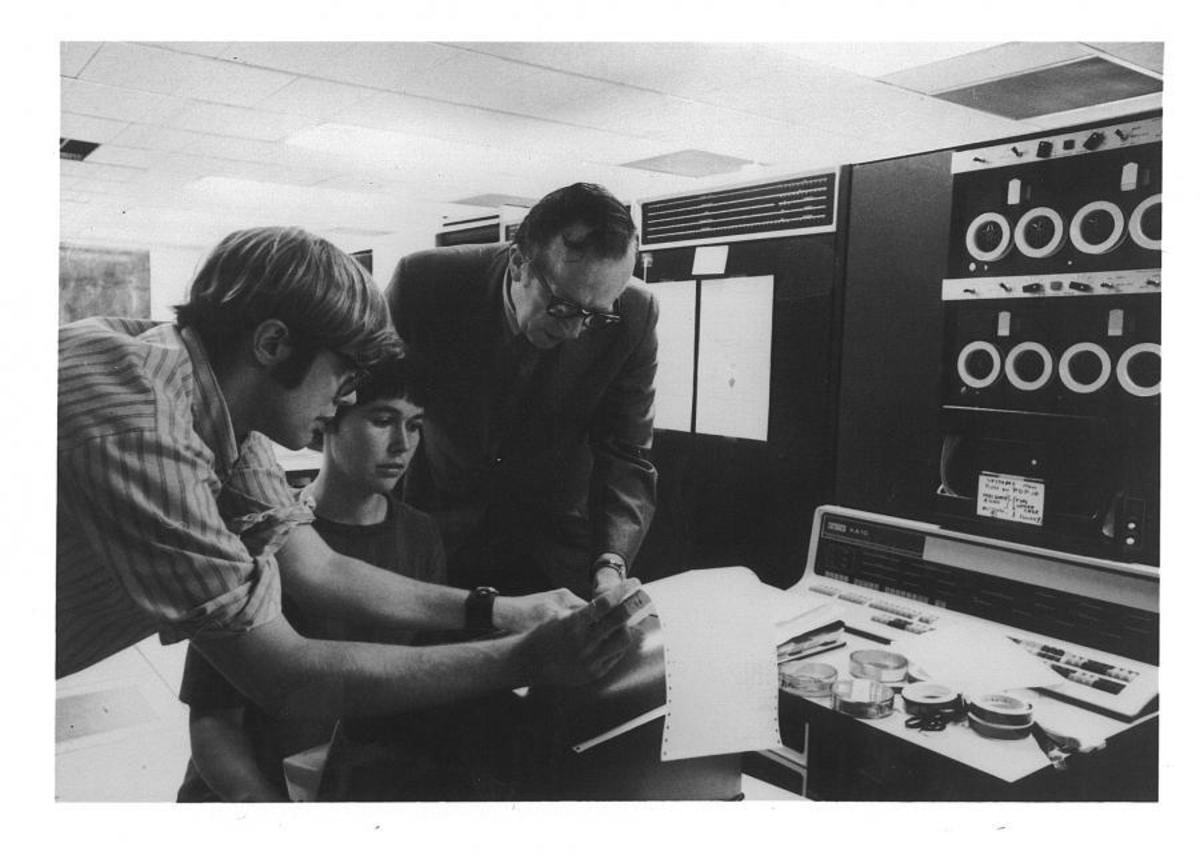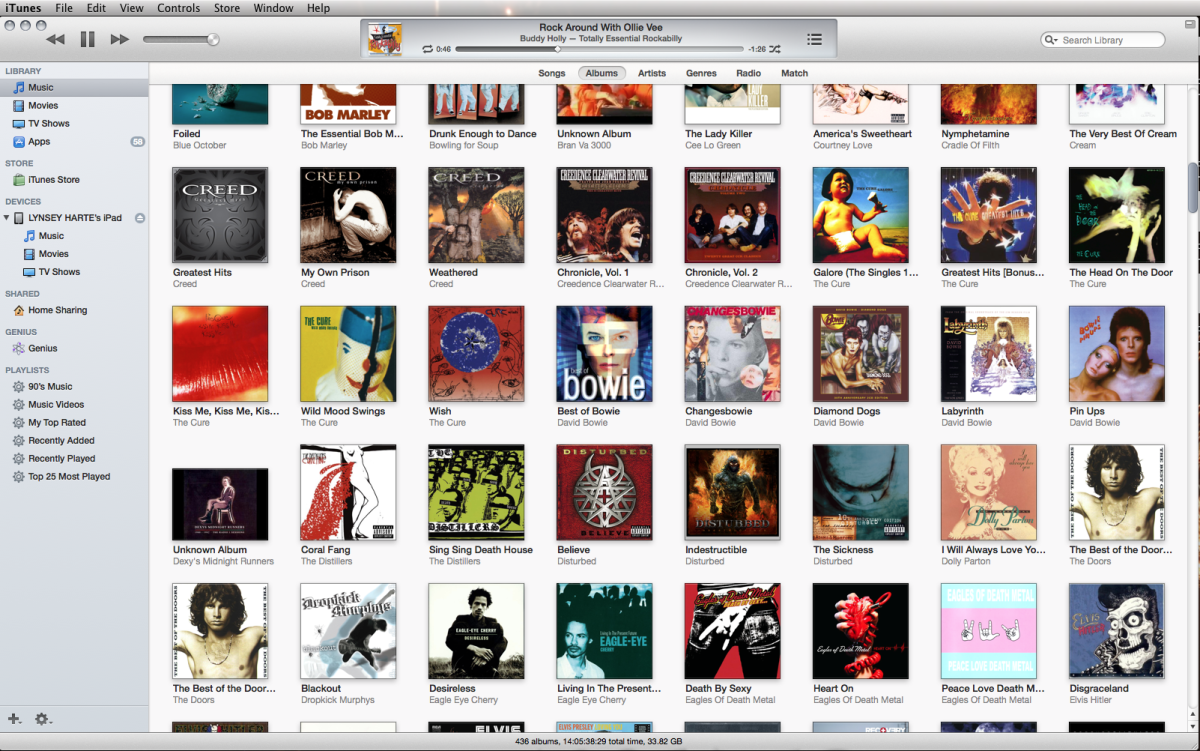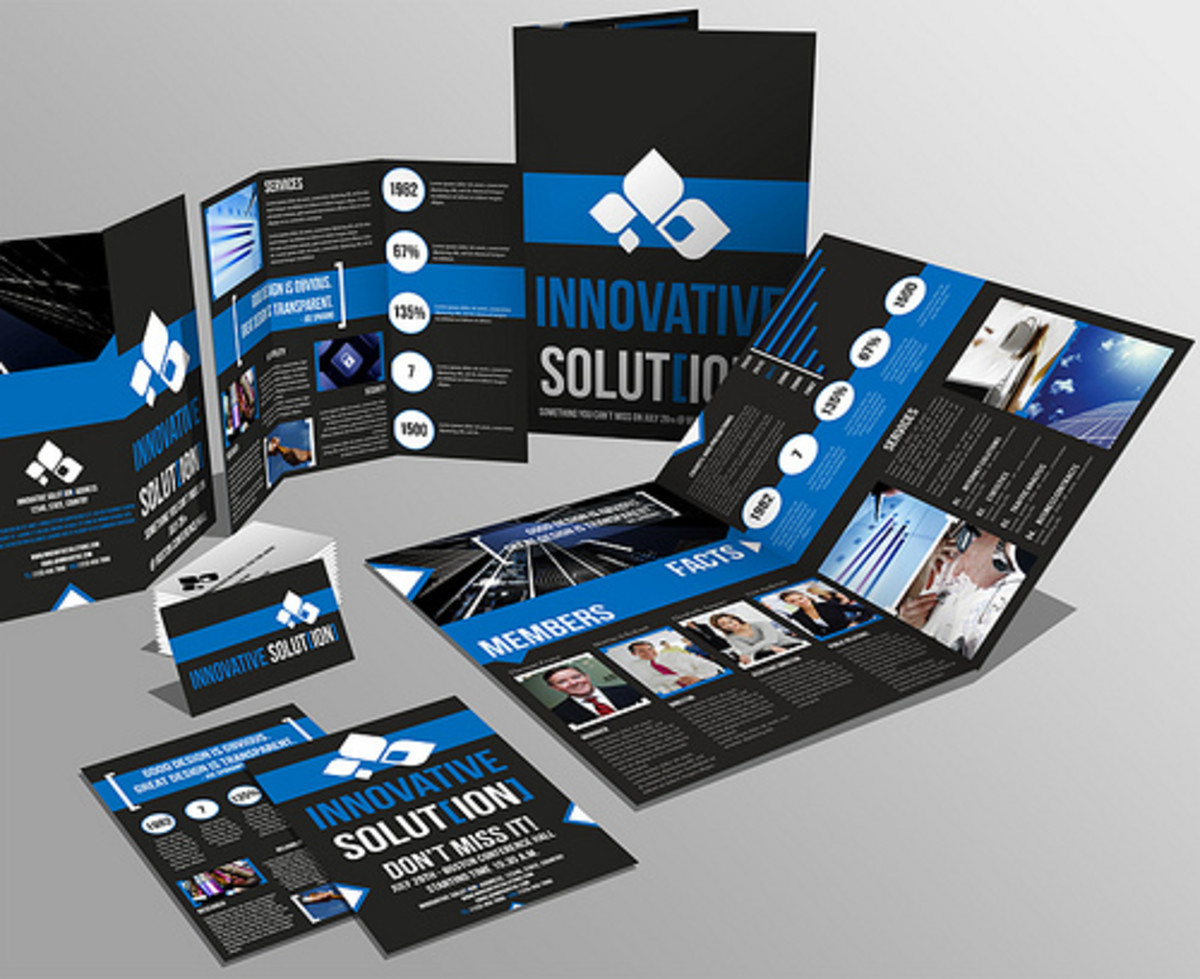How To Promote and Sell Your Own Music Online
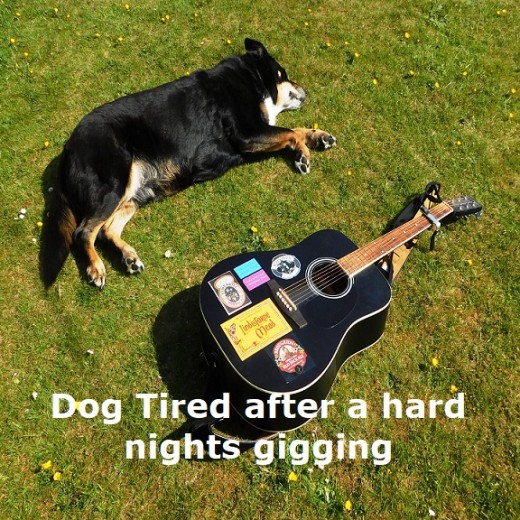
Contents
Introduction
Part 1: Preparation
1. Set a Release Date for Your Work
2. Create an Electronic Press Kit
3. Write Your Liner Notes
4. Compile Your Biography
5. Produce Your Album Artwork
6. Make Your Video
Part 2: Promote and Sell Your Own Music Online
1. Creating the Platform to be Found
2. Try a Different Approach to Be Heard (Newspapers and Magazines)
3. Music Blogs
4. Social Media
5. Email Submission
6. A Final Thought

Introduction
So you want to be an overnight success? I’m afraid it is not going to happen, unless you are very lucky and a promoter happens to be passing when you are playing and likes what he or she hears enough to sign you or your band on the dotted line and then take you down the road to fame and fortune.
The reality is that, like any start-up business, it is hard work, long hours and a lot of disappointment. In the end you may have nothing to show but a lot of good songs and a dedicated following but that may be enough for some.
Reality check: iTunes has 26 million songs (at 2017) in its catalogue. Uncollaborated figures suggest that there are 300,000 unsigned bands and solo artists. 99.9% of all artists on iTunes earn under £530 ($700) per year with the average being just £15 ($20) per year.
Still want to try? Then read on. And why not, I did and got nothing but satisfaction from writing and producing my own material for others to listen to.
Since I had no money, only a passion and a belief I have based this article on the implied assumption that most of you are like me and have little or no budget to record, promote and sell your own material.
Tip: When you approach any individual or company be polite courteous and gracious with rejection. You are the one trying to promote yourself and your material… these people and companies owe you nothing.
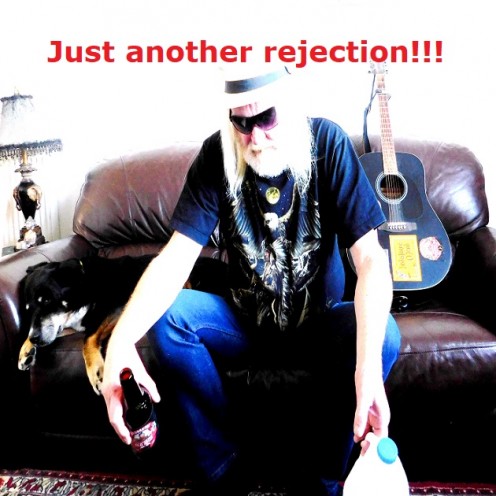
Part 1: Preparation
1. Set a Release Date for Your Work
2. Create an Electronic Press Kit
3. Write Your Liner Notes
4. Compile Your Biography
5. Produce Your Album Artwork
6. Make Your Video
1. Set a Release Date for Your Work
Once you have your finished product(s), check the calendar and mark a Friday one month from now. This is the music industries standard day for new releases. And you now have a release date to plan and work towards.
One month gives you plenty of time to get organised, send out any press releases, contact local and/or national radio and TV, and produce a video.
2. Create an Electronic Press Kit
Electronic Press Kits (EPK’s) have all the information you need to use to promote your recordings.
Your EPK should contain: Your Album/Single Artwork, Who played on the song, what they played etc (known as Liner Notes), Your (or your band mates) Biography(s), Good Quality Publicity Photos, and any Music Video(s).
If you have the finances available there are websites which help you produce a professional EPK (e.g. Presskit.to).
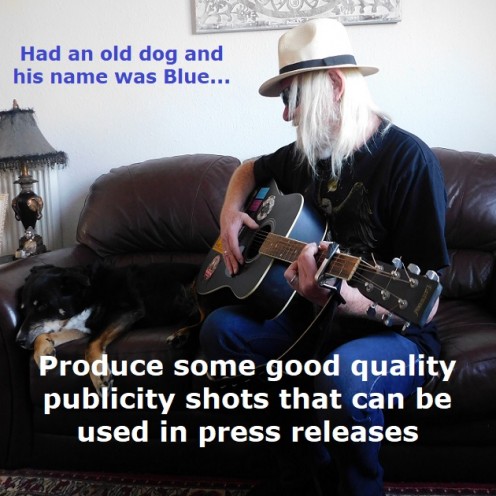
3. Write Your Liner Notes
You may not have heard of “Liner Notes” I hadn’t. They become part of your EPK and all they involve is detailing who wrote the material, who played on a record, what instruments they played, where it was recorded, mixed and mastered (if applicable) and any other relevant details. The idea is to include as much positive information about you and/or your band. In other words sell yourself.
4. Compile Your Biography
Your biography should only be one or two paragraphs (so you don’t bore your intended audience) detailing who you are, where you come from, any awards or honours, any press publicity.
The important thing is to be honest then you do not have the need to ever have to change your original information.
Tip: If you are lucky enough to get some newspaper or online columns the editor usual just copies and pastes the details from your biography. So sell yourself.
5. Produce Your Album Artwork
For distribution digitally any album/single cover should be about 2400 x 2400 pixels (in .JPG or .PNG format).
Make your cover as bold and colourful as you like, but don’t loose the message i.e. the album title and more importantly the group or solo artist name.
Tip: I produced my own album cover using just Windows Office Picture Manager and Windows paint.
These are the front and back covers I designed and produced for my CD: All for free.
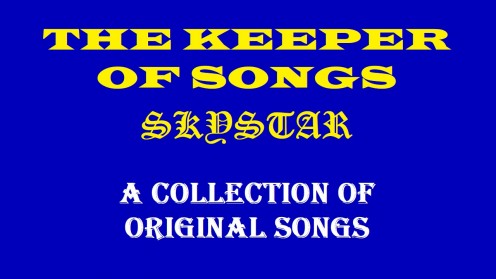
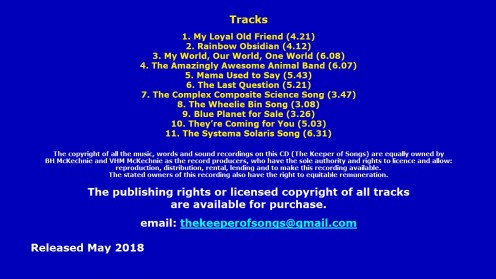
6. Make Your Video
Any music video, no matter how inexpertly produced, is a huge plus for your EPK. Once completed upload it to YouTube and Vimeo. If you want you can just upload your songs to YouTube and only include your album artwork. If it is played by enough people you can even monetise it. You can expect roughly £1,500 ($2,000) per million views. This figure obviously varies wildly.
Part 2: Promote and Sell Your Own Music Online
1. Creating the Platform to be Found
2. Try a Different Approach to Be Heard (Newspapers and Magazines)
3. Music Blogs
4. Social Media
5. Email Submission
6. A Final Thought
1. Creating the Platform to be Found
There are many things you can do to help ensure that your content is found during a search. Link and Tag your content everywhere on your Social Media or Promotion websites accounts.
There are hundreds (probably thousands) of promotional websites, some are free (usually you will only get a basic service) others charge a fee and a monthly subscription.
Tip: Tread carefully. Do your research into which one suits your needs and most importantly (if you have one) your budget.
The following lists a few websites you may want to investigate if you have not already signed-up to them:
Facebook, Twitter, Google+, Instagram, Tumblr, YouTube, Vimeo, SoundCloud, Bandcamp, WordPress, Spotify, LastFM, Reddit, MetaCafe, MusicBrainz, Discogs, The All Music Guide, Musixmatch, BandApp, Viddler and OneLoad.
2. Try a Different Approach to Be Heard
Newspapers and Magazines
Instead of sending your work to the established entertainment record labels, TV channels or Radio stations think about targeting a sector that does not normally receive music or entertainment submissions.
Try pitching to newspaper and magazine publishers who produce content that relate to your songs e.g. Car or Motorbike Magazines. There’s a lot out there and they are always looking for novel and unique ways to entertain their readers.
Newspaper and Magazine websites have a lot of blank space to fill; A lot more than in their printed edition. Try putting together content from your Liner Notes and Biography and include some promotional photographs (serious and light hearted) and send them off. That empty space on their website could be filled with your narrative.
It may not be successful but you will have more chance of getting your submission listened to and maybe even reviewed rather than have to compete with 100,000 other artists vying for publicity.
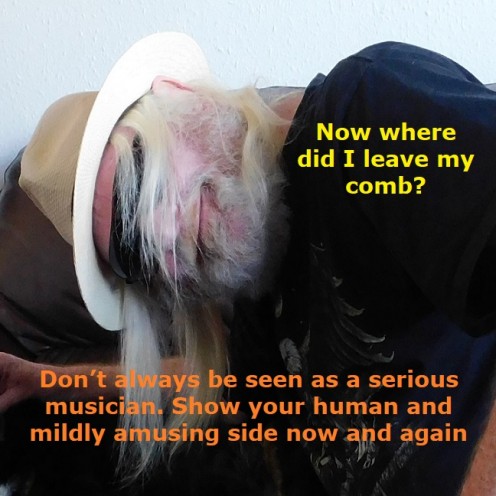
3. Music Blogs
Find new audiences by approaching Bloggers. They are always looking for new content to share with their audience. Most blogs have a niche following so if your music fits that genre there is a good chance it will be mentioned.
Do some research and find out which bloggers are currently covering your type of music. Then contact them with as much information as possible. Use the details in your EPK.
4. Social Media
In promoting your material use every avenue of Social Media that you have available to you. When it comes to using platforms like Facebook or Twitter, stick to the 80-20 rule. 80% of your content should be amusing and not to serious, 20% should be about promoting yourself, your band and your music. Also apply this rule to any images you use as publicity shots.
There follows a list of some, again there are hundreds (probably thousands) of, promotional websites, some are free (usually you will only get a basic service) others charge a fee and a monthly subscription. They are in no particular order of which one is best, so again please do your research into which one suits your needs and most importantly (if you have one) your budget.
Tip: When putting your content on any site make sure you add links to: your material, website, and any social media sites. Your goal here is to be found by, and link to, as many people as possible.
Amuse
Amuse state on their website (2018) that they offer free music distribution to independent artists. Everything is free and 100% of the royalties go to the artist.
If they discover artists they believe in, they will offer them a record deal that includes marketing, financing, promotion and playlist pitching. They pay for the project but thereafter they split the profits 50/50 with the artists. They state that this is how they make money and how they are able to make distribution free of charge. If offered a record deal there is no obligation to sign with them.
BandCamp
BandCamp is, at the time of writing, free and allows you to make your own store outlet to sell not only your music but your merchandise.
Distrus
Distrus state on their website (2018) that they have no setup fees, no hidden fees and no subscription charges. They only charge 10% on each sale or paid play. When you sign up you upload your songs and they come back to you with a “tailor made deal”. You must always have the rights to distribute the music. Your music must be in a high quality digital format (.wav or .flac) and your cover art must be .jpg 1600 x 1600 pixels.
FreshTunes
FreshTunes have fourteen “partners” (including Google, YouTube, Spotify, and iTunes). At the time of writing (2018); this service was marketed as free of charge and you receive 100% of royalties. They state that they make money from “value added services”.
MusicKickUp
MusicKickUp distributes your music to major digital music stores (e.g. iTunes, Spotify, Deezer, Google Play, WiMP, Tidal, Rdio, 7Digital, Microsoft Mix Radio and Amazon). At the time of writing… 2018; this service was marketed as 100% free and you keep all the royalties.
RouteNote
RouteNote (at the time of writing) has a free option which has no upfront or hidden costs. They will distribute your music and they receive 85% of the revenue collected. If you use the premium option you will receive 100% of collected revenue in exchange for an upfront fee and subscription.
SoundCloud
SoundCloud will make your music not only searchable but accessible to others. Other sites (e.g. Pichfork) use SoundCloud as their host.
YouTube
Everyone knows YouTube. If your video(s) are played by enough people you can even monetise them. You can expect roughly £1,500 ($2,000) per million views. This figure obviously varies wildly. YouTube’s “Analytics” and “CreatorAcademy” are a great source of learning and help to improve your chances of being found by others in a search.
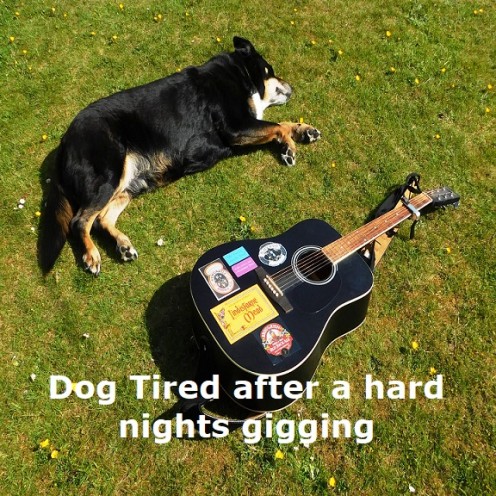
5. Email Submission
This is your first and probably only chance to make a big impression on someone. So you have to stand above the hundreds and even thousands of submissions made every day by unknown artists.
I do have to mention that the entertainment industry, in whatever genre, are highly unlikely to open unsolicited emails. The reason for this is copyright. Put simply if someone at a company opens your email and reads it or listens to the content and then does nothing more. In a years time if that same person has an idea to produce a song or program based loosely on your content then you have the right to sue for breach of copyright. Companies do not want to take any chances with regard to possibly breeching copyright.
Tip: I refer you back to the information regarding approaching Magazine publishers and Bloggers.
If you do wish to email a company or individual then you can use this template or a variation on the theme:
To: (company/individual email address)
Subject: Submission of Original New Material: Your (Album Title) by (Band or Solo Artist Name) and (Release Date of Material)
Good (Morning/Afternoon)
##Use details in the press release part of your EPK## and produce one or two paragraphs describing your album. What makes your music unique? Where are you from?
Add Attachments or Links: from YouTube etc to your Album, your website, any Social Media Links, High Quality Images of you or your band and the cover of the Album.
Best Regards,
(your name)
Email: (your email)
Mob: (your mobile phone number)
Tip: Use the “BCC Field” if you are sending emails to a lot of companies at the same time.
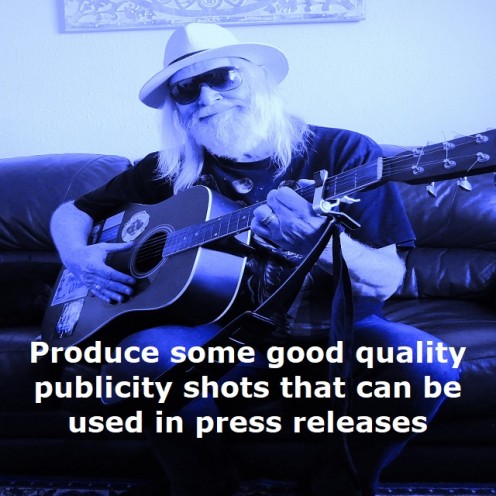
6. A Final Thought
Whether you make it or not just enjoy the moments of creativity and playing solo or in a band. Whatever original material you write and record is just that… original.
You alone, or you and your band mates, have produced something original that no one else has ever done. You are all imaginative and innovative artists so be proud of what you have done and have or will become.
Whatever avenues you choose to follow always remember my earlier advice: When you approach any individual or company be polite courteous and gracious with rejection. You are the one trying to promote yourself and your material… these people and companies owe you nothing.
This information is provided for guidance only. Remember that you are free to go your own way as nothing is written in tablets of stone or any other natural material.
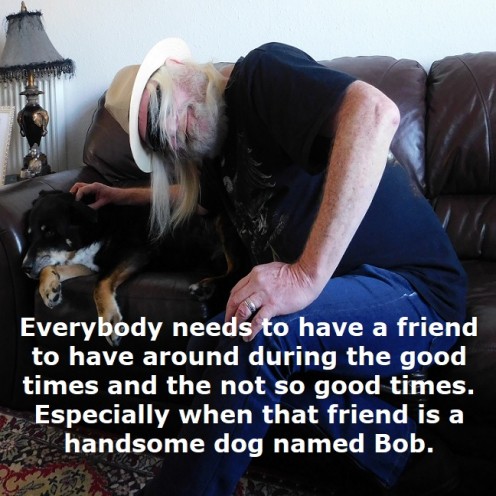
Suggested Further Reading
© 2018 Brian OldWolf



